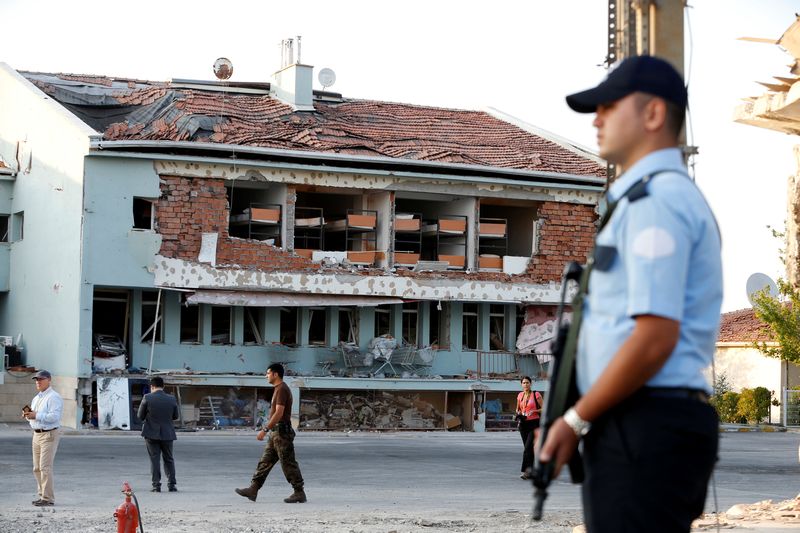ANKARA, July 20 — Some 9,300 people have been detained in Turkey and almost 9,000 officials sacked after a failed coup at the weekend which has stunned the country.
Here is what we know so far about the dramatic events of Friday night and how the government of President Recep Tayyip Erdogan has responded.
Who's targeted in wake of coup?
After a massive crackdown on the military, police and judiciary, Turkish authorities on Tuesday set their sights on the media and education sectors.
Licences for several radio and television stations were cancelled because the broadcasters are suspected of having links to an exiled Islamic cleric, Fethullah Gulen, who stands accused of orchestrating the coup.
The government also suspended more than 15,000 state education employees allegedly linked to the “Fethullah Terrorist Organisation” — its name for Gulen's network.
Turkey's education board also demanded the resignation of almost 1,600 deans from private and state universities.
Already, around 9,000 people including police and government officials have been sacked and at least 9,300 people detained including more than 100 generals and admirals accused of masterminding the plot.
Suspects are being charged with membership of an “armed terrorist organisation” and attempting to overthrow the government by force, the Hurriyet Daily News reported.
Will plotters be executed?
Turkey fully abolished the death penalty in 2004 and no executions have taken place in the country since 1984.
This week Erdogan suggested capital punishment could be reinstated if parliament approved such a move.
But this would rule out any chance Turkey has of joining the EU and could see it thrown out of the Council of Europe.
How did the coup attempt unfold?
Soldiers shut down two of the bridges spanning the Bosphorus in Istanbul at around 7.30pm (1630 GMT) on Friday and shortly after, military jets were heard flying low in the capital Ankara.
Some four hours later, a group within the military announced it had seized control of Turkey and that the country was now under martial law. Troops appeared on the streets of Istanbul and Ankara.
Erdogan, addressing the nation via a FaceTime call to the CNN Turk television channel, urged people to take to the streets and resist the coup, which they did in their thousands.
Soldiers in Istanbul opened fire on protesters and fighting erupted in Ankara, with planes bombing the parliament building.
Erdogan flew into Istanbul early Saturday where he was greeted by a sea of supporters, and shortly after the government announced it had regained control and that the coup had failed.
More than 290 people were killed, according to official figures, including over 100 putschists.
Have the clashes stopped?
Security forces and putschists briefly clashed at an air base in the central city of Konya on Sunday.
There was also an incident Sunday evening at Istanbul's second airport Sabiha Gokcen, where police fired warning shots at putschists who were resisting arrest. They eventually surrendered.
Who was behind the coup bid?
It remains unclear who exactly was behind the attempted power grab. The coup was declared by a group within the army calling itself the Council for Peace in the Homeland, saying it was intervening “to ensure and restore constitutional order, democracy, human rights and freedoms.”
Erdogan has furiously pointed blame at his arch-foe Gulen, a US-based Islamic preacher whose Hizmet movement has a powerful presence in Turkish society, including the media, police and judiciary.
Gulen has categorically denied any involvement in the plot and has suggested it could have been staged by Erdogan himself to cement his grip on power, a theory that has been raised by other critics and some analysts, but dismissed as “nonsensical” by the president's spokesman.
What are world powers saying?
World powers rallied behind Erdogan on the night of the coup attempt, with key strategic partners including the United States and European Union offering support for Turkey's elected authorities.
But there has been international concern over the mass arrests with US President Barack Obama urging Ankara to “act within the rule of law” in the aftermath of the failed putsch. — AFP






















